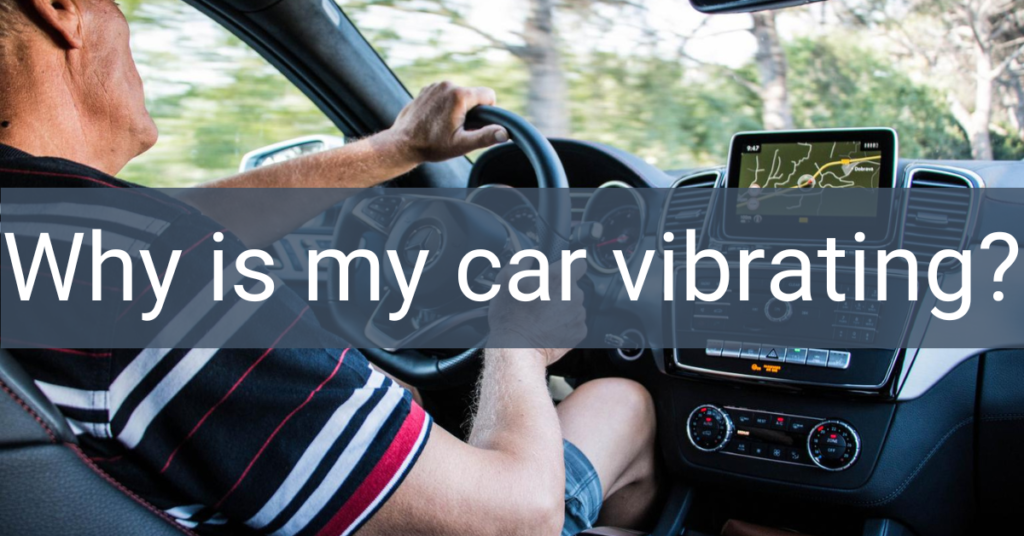There are so many moving parts in your car that it can literally be hundreds of causes for a car vibrating at high speeds. But in most instances, the culprit will be your tires and would be easy to fix.
6 Reasons for your car vibrating at high speeds
1.Excessive tire wear
Is your car vibrating at high speeds? Unevenly worn-down tires can cause the car to vibrate at high speeds, the sidewalls can have exposed steel or fabric cords. The tread can have uneven or bald patches from extreme braking causing vibration. When you park your car for long periods of time especially with a load the rubber patch in contact with the ground will get compacted and will result in an uneven tire surface and will cause a thumping and a vibration. These flat patches are normally temporary and will return to their normal shape after driving for a while. Check the sidewalls for bulges or bubbles, they are caused by broken cords in the tire and should be replaced first thing. Also, check the sidewalls for cracks or signs of tire dry rotting. Tire dry rotting can also cause the tread to get separated from the tire causing car vibrating at high speeds or a wobble. If your tires are prone to any of these situations the tire must be replaced as soon as possible.
2.Under or over inflated tires
So many people neglect their tires and drive with under inflated tires. When driving with an under inflated tire the outside edges of the tire starts to wear faster than the rest of the tire resulting in uneven wear which can cause your car vibrating at high speeds. Under inflated tires will also heat up much faster, because of the bigger contact patch to the road increasing rolling resistance. With extreme cases in overheated tires, especially with lower quality budget tires can lead to a situation where the tread of the tire gets loose and separate from the tire carcass. Such a tire will have bulges in the tread or will look wavy going up and down when you spin the tire and will cause your car vibrating at high speeds. This will certainly lead to a blowout and such a tire must be replaced as quickly as possible.
Over inflated tires cause the tire to be shaped unevenly and with a smaller contact area to the road. Only the middle part of the tread is in contact with the road causing excessive wear in the middle causing uneven wear. Over inflated tires will also absorb the road surface much less and even the slightest unevenness in the tire you will feel your car vibrating at high speed.
Remember even if you recently checked your tires and inflated it to the recommended pressure for your car, on a very hot day your tire will heat up excessively causing the air pressure to increase in the tire resulting in a over inflated tire. Especially driving at high speeds on the warm tarmac.
3.Damaged wheel
If you have been in an accident and you fixed your car but your car is vibrating at high speeds it can be a damaged, bent or cracked wheel rim. This might be difficult to see with a visual inspection. Other causes of rim damage are driving through potholes or hitting the curb hard. If you suspect the wheel rim might be the culprit, get it checked out by a professional.
4.Wheel balancing
New tires are always balanced and there shouldn’t be any vibrations of it. But as your tire wears down and lose tread the tire gets lighter. The lighter tires will be unbalanced and start to vibrate slightly. Leaving it like that is never a good idea, unbalanced wheels can lead to uneven worn tires and the vibrations will worsen and you will damage your tire that way eventually.
When should I balance my wheels?
Depending on how much you drive and how aggressive you drive, but to be safe once a year. If you don’t drive that often and at mediocre speeds it would be fine to stretch it to 2 years or when you service your car. Remember each time you replace tires, you should re-balance your wheels.
5.Wheel alignment
Abnormal and uneven wear on your tires might be caused by faulty wheel alignment. Causes that will result in faulty wheel alignment could be bumping a curb, driving through potholes or hitting speed bumps. This could cause your wheels not to align properly anymore causing tires to wear of abnormally fast in some spots causing car vibration at high speed. Wheel alignment should always be done after fitting new tires. Damaged shocks can also lead to unusual tire wear and vibrations in the car.
6. Water in your tires
Water in your tire will change constantly into vapor gas and back to water again. When you live in a cold area the water in your tire can freeze and when you drive can slosh around in your tire causing a problem where the wheel isn’t balanced anymore. The tire can cause vibrations and can even wobble out of control if there is enough water in the tire.
Conclusion

Vibrations in the car can normally be prevented by checking up on your tires every 2 weeks or so. Checking your air pressure and doing a visual inspection of the tire tread and sidewall. Check for uneven/abnormal or excessive wear and for any bumps or cracks in the sidewall. Make sure your wheels get balanced and aligned every year to 2 years maximum. When any new tires are fitted you need to re-balance and do a wheel alignment again. If you can’t find the cause of any car vibration, let your wheel rims get checked out as you can’t always visually see a potential fault in them.



